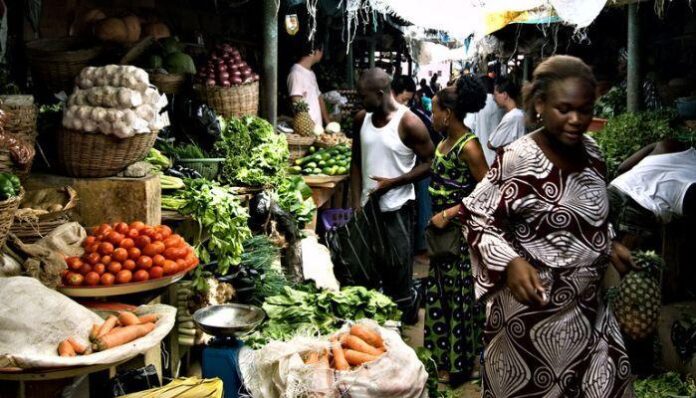Annual inflation rate ticks up nearly 29%, notched by fuel subsidy removal
By Jeph Ajobaju, Chief Copy Editor
Annual inflation rate ticked up for the 11th month running to 28.92 per cent in December 2023 from 28.20 per cent in November, the National Bureau of Statistics (NBS) disclosed on Monday.
Food inflation rose to 33.93 per cent year-on-year (YoY) or 10.18 per cent points higher than 23.75 per cent in December 2022.
The NBS said the December 2023 headline inflation rate increased 0.72 per cent compared to November 2023.
Headline inflation rate YoY was 7.58 per cent points higher compared to 21.34 per cent in December 2022.
“This shows that the headline inflation rate (year-on-year basis) increased in December 2023 when compared to the same month in the preceding year (i.e., December 2022),” NBS explained.
It said on a month-on-month (MoM) basis, headline inflation rate in December 2023 was 2.29 per cent, which was 0.20 per cent higher than 2.09 per cent in December 2023
This, it added, means in December 2023, the rate of increase in the average price level was more than the rate of increase in the average price level in November 2023.
__________________________________________________________________
Related articles:
Tinubu’s N532b budget too little to fight Nigeria’s huge poverty, Edu cries out
World Bank officials skeptical of Abuja’s poverty fight
__________________________________________________________________
Food Inflation
NBS explained food inflation rate surged in December 2023 primarily driven by increased prices of Oil and fat, Meat, Bread and Cereals, Potatoes, Yam & Other Tubers, Fish, and Milk, Cheese, and Eggs.
This represents a notable increase of 10.18 percent points compared to 23.75 per cent in December 2022.
Food inflation rate for December 2023 reached 2.72 per cent, a 0.30 per increase from 2.42 per cent in November.
Food prices have been on the rise across Nigeria in recent months due to the impact of government policies such as the removal of fuel subsidy, among others.
In July 2023, President Bola Tinubu declared an immediate state of emergency on food insecurity to tackle food price increases.
He also directed that “all matters pertaining to food and water availability and affordability, as essential livelihood items, be included within the purview of the National Security Council.”














